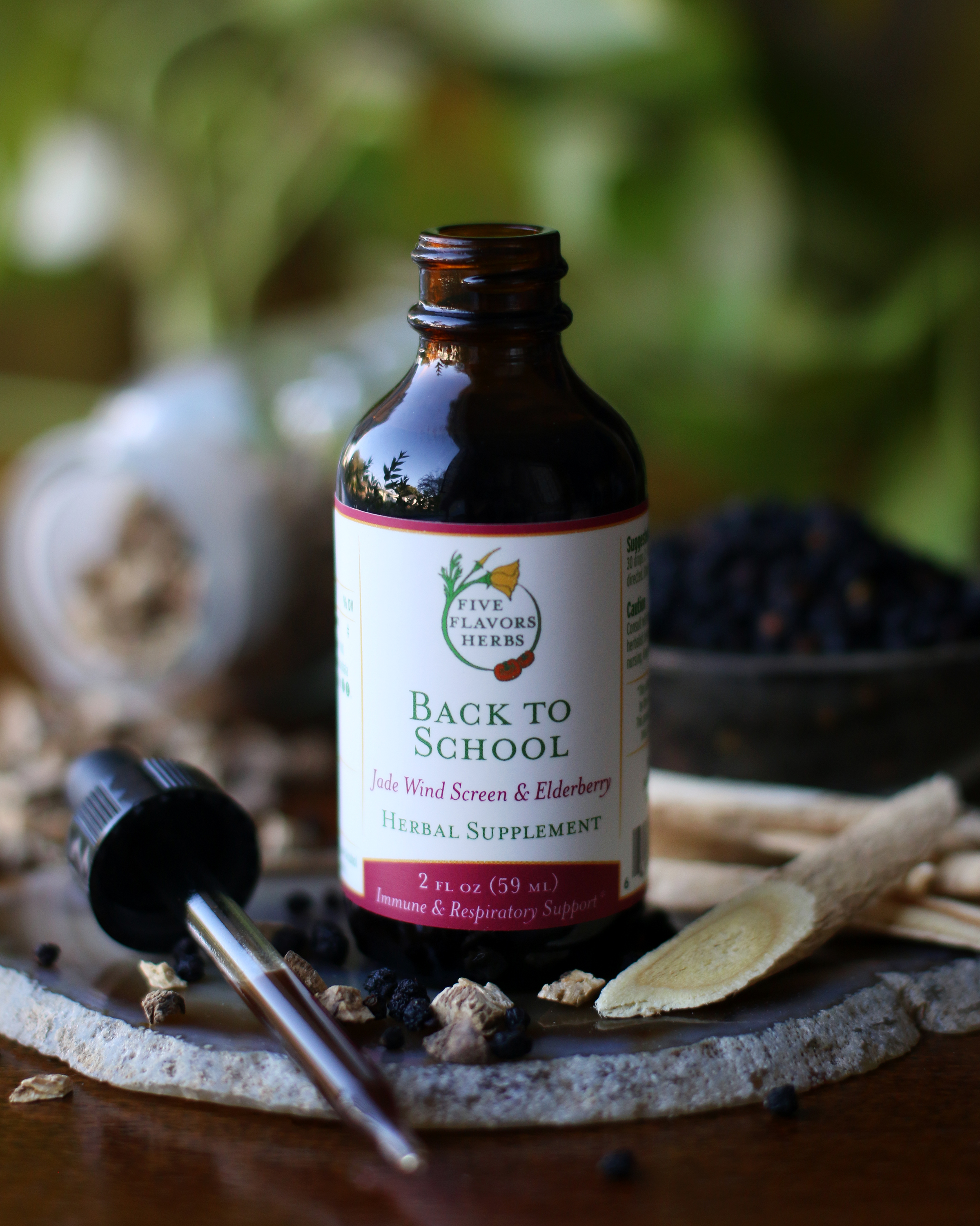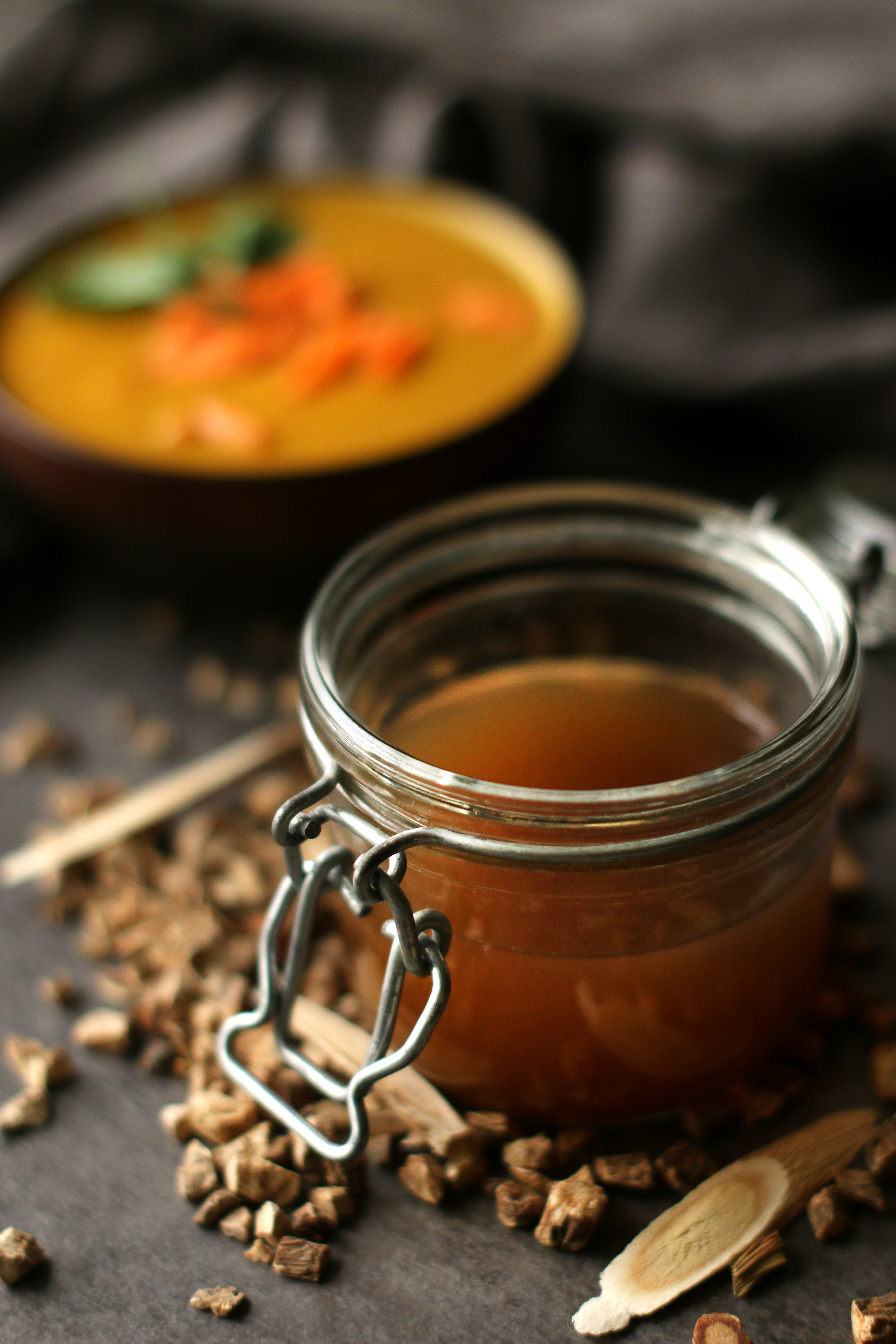Yu ping feng san, or “Jade Windscreen,” has been used in East Asia for over 800 years, with records dating back to the writings of the scholar Zhu Dan Xi in 1347. As its name illustrates, the Jade Windscreen formula supports and enriches the wei qi, or protective qi, in guarding against harmful influences entering the body. In Traditional Chinese Medicine (TCM), yu ping feng san is prescribed to address an aversion to drafts and wind, susceptibility to wind maladies, and other related complaints. TCM holds that the benefits of Jade Windscreen include stabilizing the exterior and stopping sweating, and modern applications with the traditional goal of fortifying the body against pernicious external seasonal influences.
When to Take Jade Windscreen
As a practitioner, I commonly recommend this formula to school teachers, healthcare workers, and individuals working in busy offices—in short, anyone who may come into contact with a lot of people. Jade Windscreen use may also provide mood-related benefits. While we are usually compelled to evaluate herbal immunity preparations solely based on whether or not we remain well while taking them, in the case of Jade Windscreen, people often report feeling more relaxed and focused as an effect of tonic use. This feedback is particularly common among those using our Back to School extract, a modified formulation that combines Jade Windscreen with elderberry, lemon balm, and catnip to provide a gentle, steady energy. I believe the addition of gentle calmative herbs supports users in experiencing less stress, thus freeing up more resources for effective immune response.
Jade Windscreen Ingredients & Actions
This simple formula incorporates three herbs to support healthy immune function. Astragalus root is neutral and sweet, and it supplements spleen qi to help promote lung and digestive health. Notable for its water-soluble polysaccharides, flavonoids, and saponins, astragalus has been shown to modulate immune function to benefit acute conditions (a finding corroborated by yu ping feng san research) and is used as adjunctive therapy in many chronic conditions. Atractylodes, which is warm, sweet, and bitter, tonifies spleen qi and drains dampness. Ledebouriella (siler root) is pungent and sweet, and it releases the exterior to dispel wind, damp, and cold.
 How to Take Jade Windscreen
How to Take Jade Windscreen
Jade Windscreen is available in tinctures or pills, and though I commonly recommend these delivery systems, I believe that using this herbal blend to create a decoction or soup stock is especially beneficial and worth the extra effort.
Jade Windscreen Immunity Soup or Tea Recipe
Ingredients
- 9 g roughly chopped Astragalus membranaceus (Huang qi)
- 9 g roughly chopped Atractylodes macrocephelae (Bai zhu)
- 4.5 g roughly chopped Ledebouriella (Fang feng)
Directions
For Soup:
- Combine roots with other soup stock ingredients (if desired) and simmer for at least 20 minutes (longer is fine).
- Strain out roots and other ingredients before incorporating into soup of choice.
For Tea:
- Combine roots and 6 cups water in saucepan and simmer for 20 minutes.
- Remove from heat and, once cool, strain out and set aside roots.
- Divide liquid into 3 servings and consume at evenly spaced intervals throughout the day.
- The following day, reuse roots to repeat steps 1 through 3.
Recipe Notes
- When prepared, the decoction above will have a slightly sweet and acrid taste, so it is useful to bear this in mind when choosing a soup type for your stock (savory, earthy mushroom soup recipes tend to work nicely).
- Note that yu ping feng san is traditionally delivered by combining 9 grams of powdered Jade Windscreen herbal blend dissolved in 1.5 cups of water and simmered with 3 slices of fresh ginger to create a potable draft. For individuals new to taking Chinese herbs, or those following Western herbal methods and dosing, I feel that it is valuable to point out that either as a decoction or draft, you will use approximately 1 ounce of herbs per day, which may be quite a bit more than one is used to—this is normal!
WANT IMMUNE SUPPORT NOW?
TRY OUR BACK TO SCHOOL TINCTURE
You might also enjoy:
Written by Benjamin Zappin, L. Ac. Five Flavors Herbs co-founder Benjamin Zappin is one of the Bay Area's most respected and knowledgeable herbalists and a licensed acupuncturist. With over 20 years of experience, Benjamin synthesizes his deep knowledge of Chinese and western herbal medicine with modern medical perspectives to create effective herbal formulas and treat patients. He serves patients through Paeonia Integrative Medicine.


